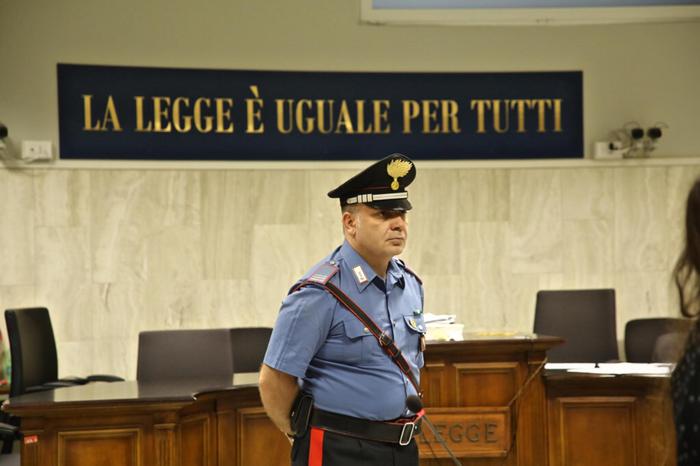In the days when tens of thousands of new victims in Corona are routine, it seems that nothing excites us, except of course the plea agreement that is being formulated according to media reports regarding the cases of former Prime Minister Benjamin Netanyahu.
A legal proceeding is basically a complex and high-cost procedure, with a reformed state having a supreme interest in maintaining the integrity of the proceeding even at the cost of huge expenses, which will often exceed the amounts discussed in the indictments. Of course, the starting point of a defendant, a person from the settlement is inferior since no person can prove his innocence through attorneys and legal aid at unlimited costs, and therefore no one will prefer to end the procedure and admit some of the charges attributed to him even if he did not pass. The criminal offenses attributed to him.
On the other hand, the state also often has an interest in reaching plea bargains, since sometimes the various pieces of evidence do not meet legal criteria for conviction, even if they are certainly clear and solid enough in the eyes of investigators and prosecutors to understand the reality. In order to establish the legal evidence, a long and difficult process is required, which has economic, public, social and criminal consequences, and therefore the prosecution will prefer to reach a plea agreement in order to easily reach the defendant's confession and end the legal proceedings. Also sometimes reaching a plea deal helps to reduce the flames of division and division between the parts of the people.
Judaism considers the defendant's confession to be the "queen of evidence" - or in the words of a sage, "the confession of a lawyer about a hundred witnesses". Or as an undertaking by the confessor to pay the debt only and not to commit any offense whatsoever including not a fine offense.
Benjamin Netanyahu and his defense attorneys in court (archive), Photo: Amit Shabi
In order to prevent the contamination of the vision of confession by economic or legal means of pressure, Jewish law defined that a person should never be convicted of his own confession, with the simple understanding that an ordinary person will not convict and incriminate himself - "no man considers himself evil", and if he did From improper means of pressure which made him thank for something he did not do.
And in the words of Rabbi Adin Ibn Yisrael ztl.
In the sources of Jewish law there are opinions that allow self-incrimination when this is done while meditating on repentance (i.e. the conviction comes from the free will of the confessor out of a desire to change and improve his way), and with supporting evidence.
Rabbi Malachi HaCohen of Livorno, Italy wrote in his book "Yad Malachi" (Rules of Law included):
Criminal law differs in its conduct from Hebrew law since the "queen of evidence" - the defendant's confession, is a specific, central and decisive weight in legal proceedings.
An interesting thing is that there are judges today who have strengthened the laws of criminal law out of an interpretation contrary to the simple and original understanding of Hebrew law.
Thus, for example, in the case of the sentencing on the basis of Suleiman al-'Abid's confession regarding the murder of the girl Hanit Kikus in 1993, the late Judge Mishael Cheshin claimed: "Normally, no man considers himself evil;
Read: No person admits that he has committed a certain offense unless he has committed the same offense. " Definitely a person considers himself evil.
Indeed, in Israeli law, self-confession is acceptable as long as it is joined by "something else" that strengthens the details provided in the confession.
The legal interpretation of the definition of "something else" is quite broad and subject to legal speculation.
Israel's widespread use of confession provokes criticism, in light of several cases of false convictions, or convictions that have been overturned in various legal proceedings due to doubt, such as the case of an IDF officer from the Circassian community, Izzat Nafsu, who served as an intelligence officer in Lebanon. According to his confession, the case of the Ma'atz gang, the case of Amos Burns, and the conviction for the murder of Hanit Kikus, as well as the recent case of the murder of Tair Rada.
In these cases the defendants withdrew from their original confession of guilt, claiming that the confession was forced upon them through pressure and threats from police investigators.
The late Tair Rada,
Today, there are many voices in the legal world for the adoption of the Jewish legal system, which eliminates the ability to use self-confession in favor of a resounding conviction and at least to lower its status as the "queen of evidence."
The reasons for this are varied, such as the problematic due to the fact that it is not always supported by another objective view.
Or when relying on the confession alone can hurt people who are mentally disturbed, as they may admit to crimes they have not committed, when more than once they actually need assistance with legal protection.
In this spirit, Supreme Court Justice Yitzhak Amit wrote of Zadorov's confession regarding the murder of Tair Rada: "Crowns must be tied to a confession and she must not be seen as a queen to whom all other evidence bows and huddles in her shadow."
Hebrew law stands out in its uniqueness in that the confession is not everything, unlike in Roman and Greek law for example, according to which the main purpose of the law is to obtain the confession of the accused, as evidenced by the documentation of the trial of Socrates who rebelled against the youth and younger generation
Notwithstanding the foregoing, it appears that in criminal administrative proceedings things are sometimes adjudicated by public regulations.
Jewish sources of halakhah (Maimonides, Rashba's responsa) allow for conduct according to conventions of public regulations, and accordingly also use of evidence that is not admissible for conviction of Torah moral offenses - which the court has no mandate to improve and facilitate but to make order And public regulations.
But in any case, everything must be done to prevent an innocent confession of his actions, if only to prevent torture.
The Torah's position, "Your colleague will rightly judge," requires a matter of caution and in-depth examination before any verdict, which is intended not only to repay a robbery, but to assimilate the motive of deterrence by punishing the defendant in order to bring society more corrected.
For in spite of the importance of public order and deterrence - "without fear - of kingship - one man devoured another living."
After all, this does not open the door to the oppression of the defendant or the company as a whole in the name of streamlining proceedings.
Judaism sees the confession of a defendant in plea bargains as a complex and sensitive issue, which cannot base a confession on criminal acts as a sign of disgrace on the confessor but only as a kind of compromise designed to reach an equal valley in terms of "and you did right and good," and truth and peace loved.
Rabbi Shraga Natan Dahan is an officer in the Res. He has a master's degree in management and technology and is certified as a rabbi and judge. Serves as a consultant and lecturer in public, security, educational and scientific bodies on issues of halakhah, technology, medicine, science and space.
Were we wrong?
Fixed!
If you found an error in the article, we'll be happy for you to share it with us









